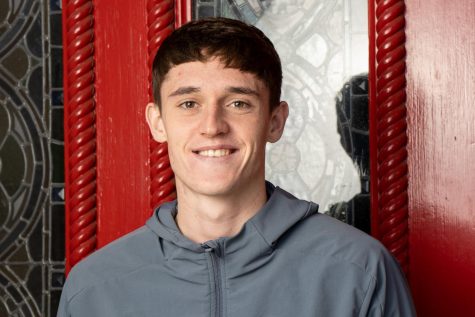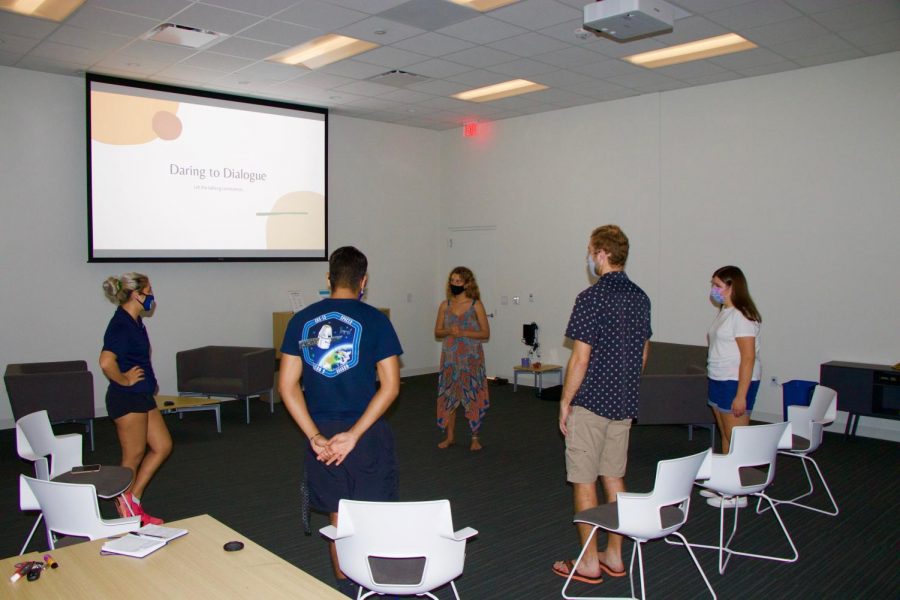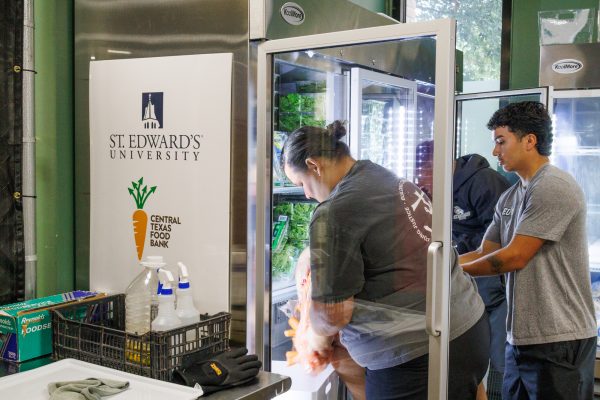Students encouraged to ‘Dare to Dialogue,’ dig deeper in support of each other
Kate D’Agostino (middle) leads the Daring to Dialogue group. D’Agostino founded the group in hopes of sparking deeper conversations.
On Oct. 22, the Daring to Dialogue discussion group met for the first and only time of the fall semester. The idea, which was the brainchild of psychology major Kate D’Agostino last year, is “a chance to skip the small talk and go straight to the nitty-gritty, big talk,” D’Agostino says.
Daring to Dialogue was D’Agostino’s passion project in 2019 and something she worked on for the duration of the year. She felt it was needed on the Hilltop because in-depth conversation was lacking. For D’Agostino, it would be a common experience to recognize people and wave at them across campus but not establish genuine, meaningful relationships. A lot of the time, it felt like there weren’t many people to talk to and a support system among the student body was necessary.
“Daring to Dialogue is a chance to meet new people and dig deep in conversation. It’s an opportunity to explore yourself and others in such a way that allows us to recognize we are not as alone as we think we are,” D’Agostino says.
D’Agostino, who has a sociology minor and is a certified yoga instructor, brought the program to life in conjunction with Peer Health Educators and the university’s Recreation & Wellness department.
According to D’Agostino, Daring to Dialogue allows students “to better understand the support system that we have and recognize how much bigger it truly is.” This is especially important given the challenges revolving around mental health at college during the best of times, nevermind in the midst of a pandemic and all the associated complications.
During the event, a series of objectives and research findings were shown to attendees before they were broken into small groups for prompt-driven conversation. Inclusivity and comfort within discussion was emphasized, with attendees invited to share and be grateful to others for sharing exactly what they wanted to, in response to thought-provoking prompts such as “what scares you most?,” “what was the lowest point of your life?” and “what are you passionate about?”
Encouraging students to go beyond limited conversation with acquaintances is one of D’Agostino’s main aims. However, finding the balance between meaningful relationships and less intimate ones is essential.
“I actually found out about the event by bumping into Kate on campus,” freshman Javier Bermudez says. “She told me about it and how she hopes to focus not just on basic conversation, but to go beyond that initial stage.”
The goal is that the word will spread and more students will take the leap and dare to dialogue with those around them. Just before the group adjourned, each person was asked to give an answer to the question “what gives you hope?” D’Agostino’s hope is that more people feel comfortable engaging in productive and supportive conversation at a time when it is arguably more important than ever before.

Hi! I am George Murray, one of the Sports Editors at Hilltop Views. I am an english literature major and journalism & digital media minor graduating...











